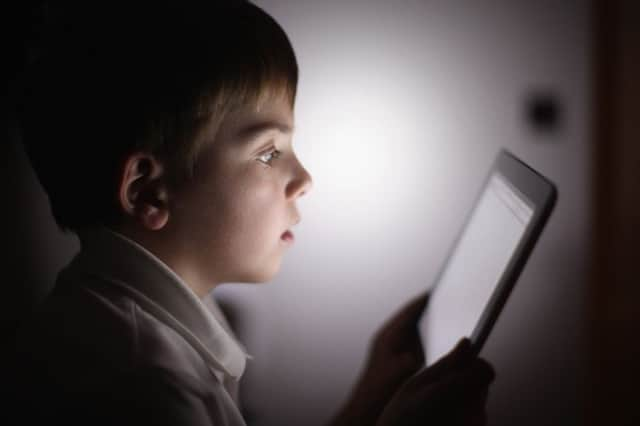Two-year-olds found watching internet porn - survey


The research showed three million UK families had discovered their children viewing violent, explicit or pornographic material on the internet, with the youngest age quoted being two years old.
It also found the average age of a child being exposed to unsuitable online material is just four years old.
Advertisement
Hide AdAdvertisement
Hide AdNearly a fifth of parents (19 per cent) admitted their children first surfed the net at age two, while almost four in ten (38 per cent) said their offspring were aged three or younger.
However, interviews with parents revealed nearly three-quarters (74 per cent) were un- aware of options to filter unsuitable material, not just on home computers but also on devices such as tablets and smartphones.
Marie-Louise Abretti, a tele-coms expert at uSwitch.com, which commissioned the survey, said: “Our research reveals a staggering number of children exposed to inappropriate content online at a worryingly young age.
“Nowadays, children not only have access to home computers, but also portable devices such as tablets and smartphones, so it’s far harder for parents to keep tabs on what their children are getting up to.”
The study found many parents have resorted to snooping to keep track of what their children are up to.
More than half admitted checking internet history on devices, while 16 per cent have logged into their children’s social media profiles to check who they have been talking to.
Almost four in ten have uploaded parental control software to try to block sites with explicit or unsuitable content, and over a third (34 per cent) allow their children to use the internet only if the screen is within their sight.
Ms Abretti said: “Schools, mobile networks and broadband providers all play a part in keeping children safe online, but parents agree they should take primary responsibility.”
Advertisement
Hide AdAdvertisement
Hide AdDr Mary Brown, a former psychology lecturer at Robert Gordon University in Aberdeen, said: “There is research to suggest that such children can become desensitised. The ‘thermostat’ for aggression and other forms of anti-social behaviour is set too high because they are exposed to it in an unfettered way. This means that some have no idea what moral behaviour is.
“The fact that, despite all the publicity, so many parents are still not monitoring the internet suggests they are not taking their parental role seriously enough and trying to be their child’s friend rather than showing necessary authority.”
Alison Todd, director of children and family services at Children 1st, said: “We believe it’s everybody’s responsibility to protect children. As part of that, it’s crucial that parents and carers educate themselves about mobile technology and online communities, be aware of the risks facing children and young people and support them to use the internet safely.”
Claire Lilley, head of child safety online at children’s charity the NSPCC, called the report “chilling”, and warned against the long-term effects of exposure to explicit content at a young age.
She said: “We have been warning for some time about the dark influence extreme, violent and pornographic material can have on children, who can sadly find it relatively easily online.”
Last month, a 12-year-old boy admitted raping his younger sister after watching porn on an Xbox. He walked free from youth court and is now working with social workers ahead of returning to his family home.